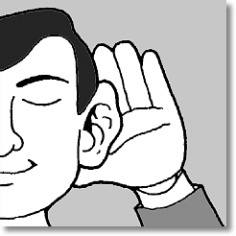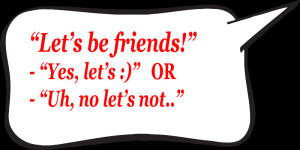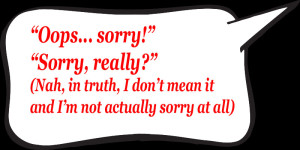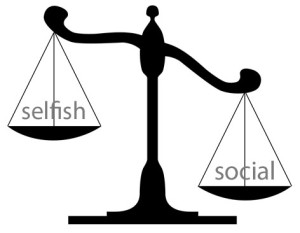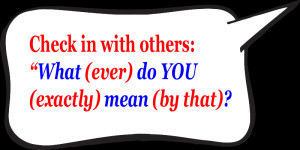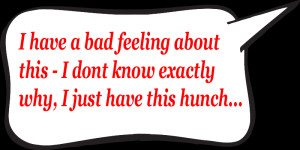 “How did you ever snag that opportunity?” “I don’t know, I guess I was just in the right place at the right time.”
“How did you ever snag that opportunity?” “I don’t know, I guess I was just in the right place at the right time.”
“How did you meet so-in-so that led to [insert wondrous happening]?” “It was dumb luck – I just happened to be going by and…”
My son is one of those people that we call “lucky” – things that he has no direct control of just seem to go his way. He gets picked for things, wins chance lotteries (not the monetary ones; the put-your-name-in-and-we’re-picking-300-from-the thousands-of-entries-to-participate lotteries). Like the other day he was at the Atlanta airport waiting with 100s of stranded others for a flight that was facing a long delay, when he noticed another flight on the board that was leaving earlier.
He decided to try for the earlier flight and heard that the waiting list was 32 people opting for standby. What are the chances of actually getting on when he was last on a long list? But with nothing to lose, he added his name to the standby list and, of course, his name was called and he claimed the last seat of the 3 people that got on the packed flight.
So how do the lucky do it? Sometimes it comes down to what you don’t know that makes all the difference – inside knowledge. In the case of getting off the standby list, the obvious fact is that many fly with companions who don’t want to separate. When there are 3 single seats, those flying alone have an advantage.
The inside knowledge is whether the airline’s policy is to just take the singles (the easy route), or called people in the order on the list and see if each party wants to forfeit sitting together to take the flight. In the harried world of airport flight delays, the easy route is most appealing. (If you are in this situation, you could help your cause by signing up on the standby list as singles, if you are willing to fly solo should you all not get called.)
Luck has been defined as preparedness meeting opportunity. I would add to that description that the lucky also are very observant and notice the opportunity that others may miss seeing. They have their antenna up pretty much all the time in their area of interest.
So the lucky people in the world are actually just very well prepared in their area, and what appears to be taking a flyer is really not that farfetched at all. They are well qualified for Lady Luck to drop into their proverbial laps.
But the supposed lucky also communicate their willingness to give it a try and voila, success is theirs! They see an opportunity and they are not shy about pursuing it. With a dogged willingness, but when they get it on the first attempt, it’s chalked up to dumb luck.
But it’s far from luck and they are far from dumb. They are extremely well qualified for what they are attempting, because if they aren’t, they wouldn’t last long. And lucky people continue their lucky pattern with multiple successes.
Then there are the one-hit wonders who strike it lucky once, which is truly dumb luck, a random occurrence. Great if it happens to you; enjoy it for the usually rare happening that it is. But you can increase your natural luck by being really prepared, then keeping your eyes and ears open for the opportunity to jump on it. Communicate your willingness to be considered and you will be surprised at the opportunities that suddenly appear out of thin air. The more you do this, the luckier you will find that you become.
As for winning chance lotteries, well who hears about all the times your ticket didn’t come up?

